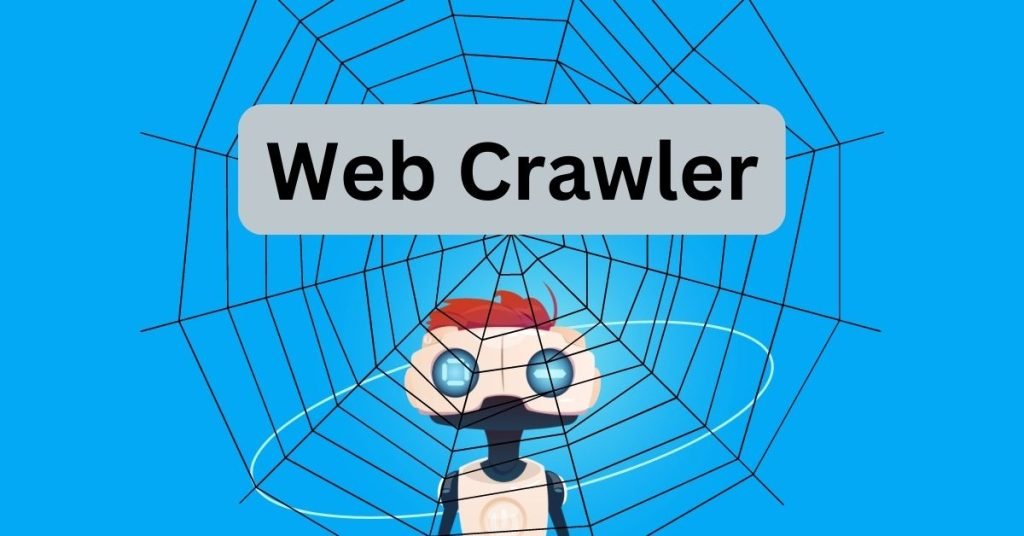A web crawler is a computer software program a search engine uses to index web pages and content across the World Wide Web. This program automatically navigates the World Wide Web, visiting multiple pages and gathering information about them. The information is then used for various purposes, such as indexing pages for search engines, analyzing website traffic, or even data mining for specific details.
The Web crawler starts with a list of URLs to visit and then follows links from those pages to other pages until it meets a certain number of pages or a specific stopping condition. Web crawlers can be very sophisticated and have various options for customization, such as the ability to follow only certain types of links, exclude certain pages, or limit the depth of the crawl.
How do web crawlers work?
Web crawlers start with a list of URLs to visit and then work by repeatedly downloading the content of each page, extracting links to other pages, and adding those links to a queue of subsequent pages. The process continues until all pages are visited, a specified number of pages are viewed, or a specified stopping condition is met.
Here is a general outline of how a web crawler works:
- Web crawlers are initialized with a list of seed URLs.
- The crawler downloads the content of the first URL in the list and extracts all links to other pages.
- The extracted links are added to the queue of pages for later viewing.
- The Web crawler visits the following URLs in the queue and repeats the process of downloading content and extracting links.
- The crawler stores the information collected from each page in a database, such as a page’s title, description, and keywords.
- The crawler continues to visit pages and add new links to the queue until all pages are visited, or a specified stopping condition is met.
Web crawlers can be highly customizable, with options to follow only certain types of links, exclude specific pages, limit crawl depth, and more. They can be designed to handle different kinds of websites and use various techniques to extract information, such as using regular expressions or machine learning algorithms.
Were you looking for a website crawler?
When choosing a website crawler, there are several key factors to consider:
- Customizability: Find a highly customizable crawler that lets you set options like the type of links to follow, pages to exclude, and crawl depth.
- Scalability: Make sure the crawler is designed to handle large websites and can scale as needed.
- Speed: Choose a crawler that can download and process pages quickly, especially if you’re crawling a large website.
- Accurate Information Extraction: Ensure that crawlers can extract information from pages such as titles, descriptions, and keywords.
- User-friendly interface: Consider a user-friendly crawler, making it easy to set up and run crawls.
- Data Output: Check the crawler’s data output options, such as the output file format, to make sure it meets your needs.
- Technical support: Consider a crawler that offers technical support if you have any problems or questions.
- Price: Compare the cost of different crawlers to ensure you get your money’s worth.
Ultimately, the best website crawler for you will depend on your specific needs and requirements, so it’s essential to consider each factor carefully before deciding.
What are the leading web crawler types?
There are different types of web crawlers, including:
Search Engine Crawlers: These crawlers are used by search engines like Google to index web pages and gather information about them. They follow links on web pages to discover new pages and collect data about them.
Data Mining Crawlers: These crawlers are used for data mining, which involves collecting and analyzing large amounts of data from websites. They can extract specific information like product prices or stock levels from websites and store them for analysis.
Content crawlers: These crawlers collect information about specific types of content, such as news articles or images. They are usually designed to handle a particular kind of website or content and may have unique options for that type of content.
Deep Web Crawlers: These crawlers are designed to crawl the “deep web,” which includes parts of the Internet that are not easily accessible through regular search engines. This includes databases, private networks, and other resources that are not publicly available.
Event-driven crawlers: These are designed to crawl specific events like sports games or political debates. They gather real-time information about events and provide updates as they unfold.
Domain-Specific Crawlers: These crawlers are designed to crawl specific types of websites, such as e-commerce or social networks. They are usually highly specialized and have options and features particular to the kind of website they are designed to crawl.
In conclusion, web crawlers are computer software programs that navigate the World Wide Web to gather information about web pages and content. They are essential tools search engines use for indexing pages, analyzing website traffic, and data mining for specific details. Web crawlers start with a list of seed URLs, download the content of each page, extract links to other pages, and add those links to a queue of subsequent pages until a specified stopping condition is met.
There are various web crawlers, each designed for a specific purpose, such as search engine crawlers, data mining crawlers, content crawlers, deep web crawlers, event-driven crawlers, and domain-specific crawlers. When choosing a website crawler, it’s essential to consider factors like customizability, scalability, speed, accurate information extraction, user-friendly interface, data output, technical support, and price to ensure you get the best tool for your specific needs and requirements.
Also Read More: Best Laser Microphones for Clear Audio Recording


